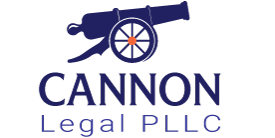Along with other cases from federal and state partners, today we charged that mortgage rescue scammers have taken $ 25 million in illegal advance fees from consumers. It serves as a reminder of how important it is to watch out for scam artists trying to take advantage of people who need help avoiding foreclosure.
Federal law bans law firms—except under very limited circumstances—from requesting or receiving payment from you for help obtaining foreclosure relief, such as a mortgage modification, before you’ve signed a mortgage modification agreement with your lender.
In one case, we allege that two companies and their principals offering legal services took in over $ 19.2 million in fees from over 10,000 distressed homeowners nationwide, with most, if not all, of that money coming from illegal advance fees for so-called loan modification services.
Warning signs
There are red flags that a company claiming to offer legal foreclosure relief help may not be worth your money. Watch for the following warning signs and ask more questions:
- Demands for payment upfront. If a lawyer or someone claiming to offer legal help wants to be paid first—before you receive a modification—they may be breaking the law. A licensed lawyer can ask you to pay first but only if the lawyer is licensed in the state where you live or where your house is located. Even a licensed lawyer in your state can only receive up-front payments if they meet other requirements about what they charge for, how they deposit the money, and if they comply with all other state laws and regulations.
- Any claim that a modification is guaranteed.Your mortgage company must agree before you can get a modification. A lawyer or someone claiming to offer legal help cannot guarantee you will get a loan modification.
- A hard sell. Most licensed lawyers do not call or e-mail you directly and push you hard to pay money right away. If someone claiming to be a lawyer calls you on the phone and asks you to sign papers or pay them right away, ask some more questions to be sure it’s not a scam. Here’s a guide to help you determine if it’s real legal help or a foreclosure scam.
Third party authorization
When it comes to actually getting help with foreclosure relief, your mortgage company may require you to authorize a third party to act on your behalf, so it’s important to know what this means for you. Only authorize a third party that is trustworthy and be careful about exactly what you’re authorizing them to do.
What servicers can do
Foreclosure relief scams are costly for consumers and also impact servicers and investors in the mortgage industry. We’re posting a new model third party authorization form that was developed as part of loan modification scam prevention efforts by representatives from government agencies as well as consumer advocacy groups, housing counselors, and the mortgage industry. The form may be useful for mortgage servicers who can choose to use the form in whole, or in part, by adapting other existing forms. The new model form provides additional questions that will help mortgage servicers build on existing privacy and fraud controls by collecting information that will make it easier for servicers to spot red flags of a foreclosure rescue scam.
Continue Reading
Today, we’re releasing our third Snapshot of Complaints Received from Servicemembers, Veterans and their Families. The report details the data and trends from consumer complaints we’ve received from members of the military community since July 2011.
Here are just a few highlights:
- Debt collection complaints have continued to rise since our last report, and now make up 39 percent of total complaints. It is our largest category of complaints from the military community.
- Credit reporting remains a top category of concern. 72 percent of these complaints are about incorrect information on credit reports. This remains a significant issue for the military community, one that we highlighted earlier this year.
- Student loans are another concern. 49 percent of these complaints are about problems dealing with a lender or servicer. In these complaints, we continue to see long-standing trends, such as servicemembers complaining about not being provided their Servicemembers Civil Relief Act rights.
This year our report also highlights our outreach efforts that allowed us to connect with thousands of members of the military community, as well as three of our enforcement actions that recovered millions of dollars for affected consumers, primarily servicemembers, veterans, and their families. These figures represent the positive impact of the work we continue to do on behalf of those who serve.
Problems with account services
Basic account servicing stands out as a significant area of concern for servicemembers. Most consumers can call their financial institution, visit a branch, or connect online to try and get the help they need to maintain their account. Unfortunately, for military personnel and their families, the realities of military life, including deployments, frequent moves, and a high operational tempo, can sometimes make access to those services extremely challenging.
We found that servicemembers were often subject to a variety of account maintenance or penalty fees, as well as account-access restrictions, which were triggered due to aspects of their military service.
These problems raise concerns that financial institutions may not have a true understanding of the servicing needs of their military customers and may lack proper procedures and protections for them. Detailed examples of servicemember experiences can be found in Section II of the report.
Check out the snapshot to learn more.
We’re listening
As always, if you have a problem with a consumer financial product that you can’t resolve on your own; or if you know someone in that situation, please remember that you can submit a complaint online or by calling (855) 411-2372. We make your voice heard.




